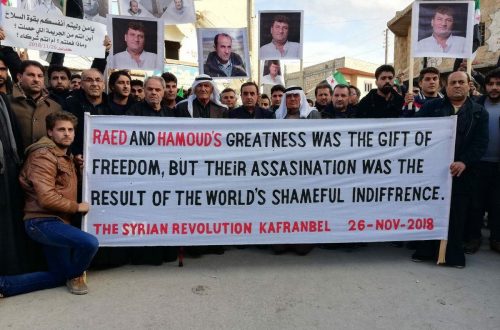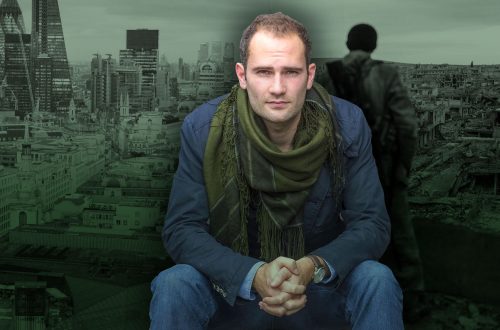Some of our BTL commenters repeat it like a mantra, as if failure to do so after every Syria-related post would be an unforgivable sin: the Syrian opposition to Bashar al-Assad’s regime is controlled by Al Qaeda and other radical Islamist elements; therefore one side is as bad as the other or (in the case of the rebels) worse.
Elizabeth O’Bagy has made several trips to Syria, most recently in early August, and has spent hundreds of hours with Syrian opposition groups. She writes:
Groups like Jabhat al Nusra, an al Qaeda affiliate, are all too happy to take credit for successes on the battlefield, and are quick to lay claim to opposition victories on social media. This has often led to the impression that these are spearheading the fight against the Syrian government. They are not.
These groups care less about defeating Assad than they do about establishing and holding their Islamic emirate in the north of the country…
Moderate opposition forces—a collection of groups known as the Free Syrian Army—continue to lead the fight against the Syrian regime. While traveling with some of these Free Syrian Army battalions, I’ve watched them defend Alawi and Christian villages from government forces and extremist groups. They’ve demonstrated a willingness to submit to civilian authority, working closely with local administrative councils. And they have struggled to ensure that their fight against Assad will pave the way for a flourishing civil society. One local council I visited in a part of Aleppo controlled by the Free Syrian Army was holding weekly forums in which citizens were able to speak freely, and have their concerns addressed directly by local authorities.
Moderate opposition groups make up the majority of actual fighting forces, and they have recently been empowered by the influx of arms and money from Saudi Arabia and other allied countries, such as Jordan and France. This is especially true in the south, where weapons provided by the Saudis have made a significant difference on the battlefield, and have helped fuel a number of recent rebel advances in Damascus.
…..
At this stage in the conflict, barring a major bombing campaign by the U.S., sophisticated weaponry, including anti-tank and anti-aircraft weapon systems, may be the opposition’s best chance at sustaining its fight against Assad. This is something only foreign governments, not jihadists, can offer. Right now, Saudi sources that are providing the rebels critical support tell me that they haven’t sent more effective weaponry because the U.S. has explicitly asked them not to.There is no denying that groups like Jabhat al Nusra and the Islamic State of Iraq and al-Sham have gained a foothold in the north of Syria, and that they have come to dominate local authorities there, including by imposing Shariah law. Such developments are more the result of al Qaeda affiliates having better resources than an indicator of local support. Where they have won over the local population, they have done so through the distribution of humanitarian aid.
Yet Syrians have pushed back against the hard-line measures imposed on them by some of these extremists groups. While I was last in northern Syria in early August, I witnessed nearly daily protests by thousands of citizens against the Islamic State of Iraq and al-Sham in areas of Aleppo.
Writing at Foreign Affairs, Michael Weiss– who has many contacts in Syria– also offers a more nuanced (and encouraging) take on the opposition than we often get.
The Washington Post reports that extremists among the rebels are in panic mode out of fear that they too may be targeted by US air strikes. It wouldn’t hurt my feelings if they were.
(Hat tip: Adam Holland)


